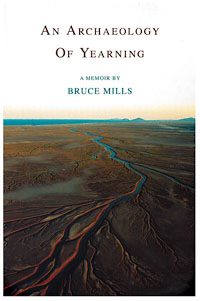If ever there was a human being for whom the descriptor of sublime applied, that person is the late Nelson Mandela. His magnanimity was nonpareil; as was his capacity to unite that which seemed irrevocably divided. “It is with heavy hearts that we mourn the passing of the former South African President,” said Lisa Brock, academic director of the Arcus Center for Social Justice Leadership. Brock knows the Mandela family, and she was interviewed about his legacy by WWMT-TV, WOOD-TV, Kalamazoo Gazette/MLive, WKZO radio, and the Chicago Tribune.
Mandela died on Thursday, December 5, at the age of 95. “After serving 27 years as a South African political prisoner on the infamous Robben Island, he emerged as a symbol of freedom to millions worldwide,” added Brock. “Revered as a hero and human rights leader, he will be dearly missed.” In honor of his legacy, the College will hold a vigil on Friday, December 6, at noon in front of Stetson Chapel. All are welcome.
David Barclay, the Margaret and Roger Scholten Professor of International Studies, shared his personal encounter with Mandela. “It was almost exactly twenty years ago, in 1993. I was sitting in Johannesburg airport, waiting to change planes,” Barclay wrote. “As I recall, it was a very long wait, and I was trying to finish some work. I vaguely noticed a group of four or five individuals as they sat down in the seats next to mine; but, as one does in airports, I didn’t pay any particular attention to them, continuing instead with my work. At one point I lifted my head and looked over at them, and suddenly I noticed that one of them was Nelson Mandela. I couldn’t help myself. I decided to be a crass American tourist and ask him for his autograph. I began to search for a blank piece of paper, and all I could find was the reverse side of a set of Kalamazoo College faculty meeting minutes! So I walked up to him and asked if I could bother him for his autograph. He very graciously stood up, asked me my name, and signed the K faculty minutes! We then spoke for about five or 10 minutes. I was a nobody, an autograph-seeker, a complete stranger, yet he spoke to me as though I were actually important. I was immensely impressed. This was in 1993, three years after his release from prison and one year before he became president, and he had absolutely no security detail of any kind. It turned out that he and his colleagues were waiting for another group of colleagues who were arriving on a delayed flight from London. At the head of that group was Thabo Mbeki, who succeeded Nelson Mandela as president in 1999. So on that day, purely by coincidence, I saw two future presidents of South Africa.”





